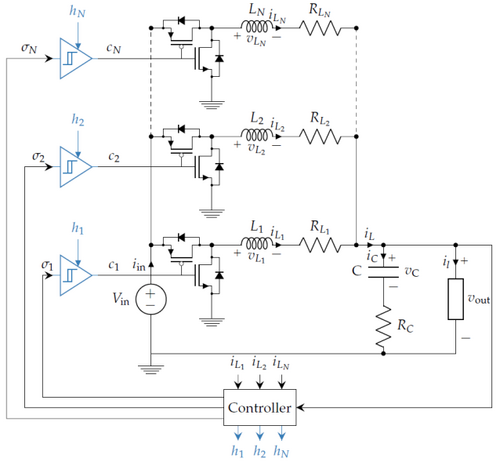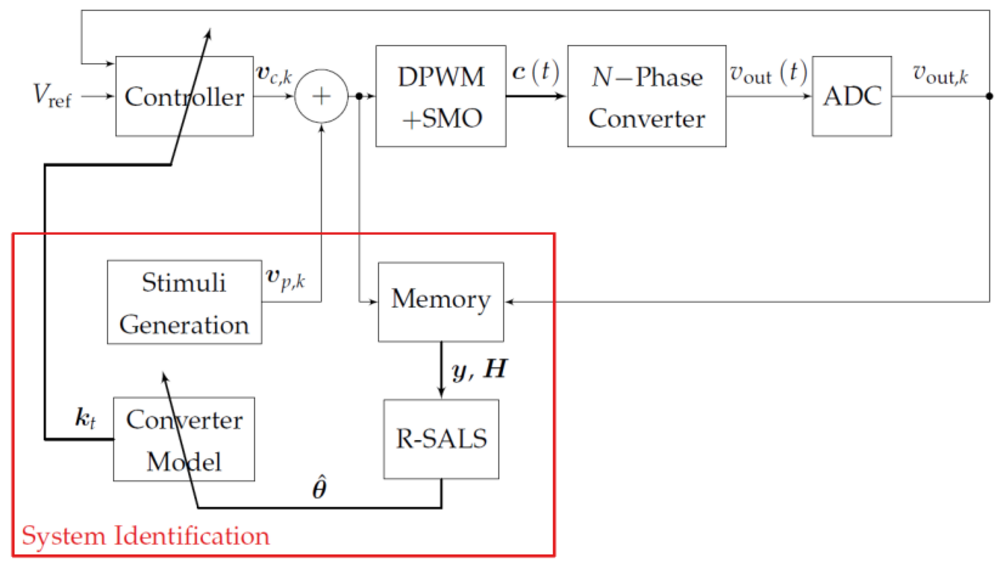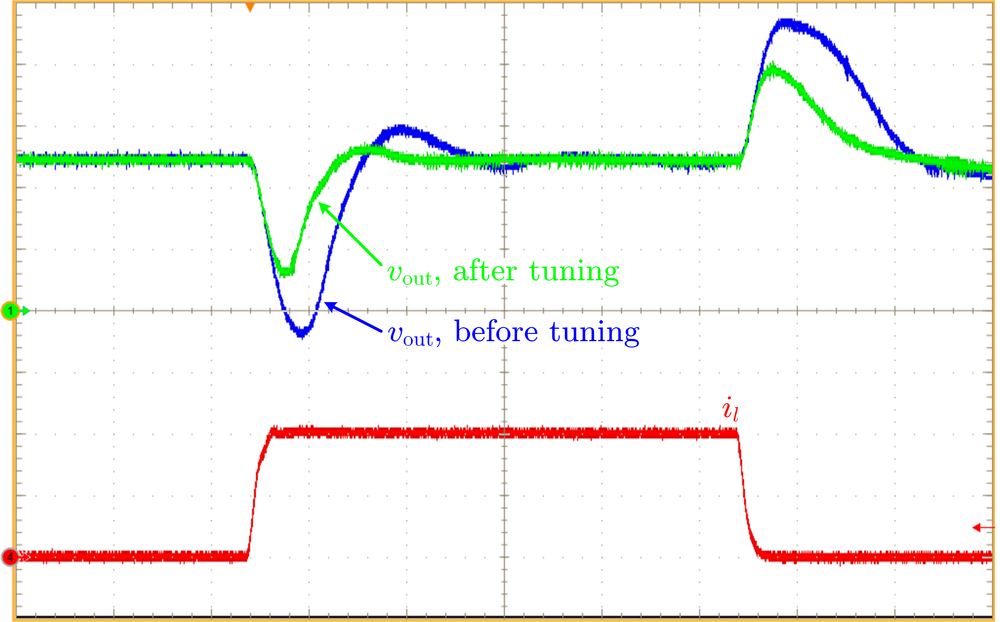Project description
The increasing amount of required functionality in today’s electronic devices demands for more advanced power supply concepts. A possible solution to increase the performance and efficiency of DC-DC converters is to use multi-phase topologies. These converters employ multiple parallel power stages, hence sharing the total load current. In order to provide a regulated output voltage and equal sharing of the total current, a control concept is an essential part of such a converter. Furthermore, the importance of online system identification (SI) in power electronics is ever increasing. It enables the tracking of variable system parameters, which in turn can be used for online controller tuning.
In this project, a novel digital constant frequency sliding mode control (SMC) law for interleaved multi-phase DC-DC converters is developed. Both constant switching frequency and interleaving are achieved by dynamically adjusting the hysteresis band of the comparators that generate the control signals. The proposed interleaving method neither imposes constraints on the number of required phases to obtain a specific output voltage nor uses a quasi-SMC law as other implementations for interleaved converters typically do. The suggested control concept accomplishes an accurate output voltage regulation and an improved dynamic performance in comparison with quasi-SMC.
Ph.D. Project Facts
ISP Research Team
Marc Kanzian
Mario Huemer
Partners
Infineon Villach, opens an external URL in a new window
Duration
Jan. 2016 - Dec. 2018
In order to detect the employed converter configuration, a state-space-based SI approach utilizing the step-adaptive approximate least squares estimation algorithm is proposed. The presented method accurately provides the parameters of the converter’s state-space model while simultaneously featuring a fast convergence rate and low computational complexity.
In comparison with state-of-the-art parametric SI methods, the number of required multiplications is more than halved, while accuracy is improved. Consequently, the estimated converter model is utilized to automatically tune the controller. This results in an improved converter performance in terms of overshoots, undershoots, and settling times.



Publications
5) Kanzian M., Gietler H., Unterrieder C., Agostinelli M., Lunglmayr M., Huemer M., "Low-Complexity State-Space-Based System Identification and Controller Auto-Tuning Method for Multi-Phase DC-DC Converters," in IEEE Transactions on Industry Applications, Vol. 55, Nr. 2, IEEE, Seite(n) 2076-2087, 2019
4) Kanzian M., Gietler H., Agostinelli M., Priewasser R., Huemer M., "Comparative study of digital control schemes for interleaved multi-phase buck converters," in e & i Elektrotechnik und Informationstechnik, Vol. 135, Nr. 1, Springer, Seite(n) 54-60, 2018
3) Kanzian M., Gietler H., Unterrieder C., Agostinelli M., Lunglmayr M., Huemer M., "Low-Complexity State-Space Based System Identification and Controller Auto-Tuning Method for Multi-Phase DC-DC Converters," in Proceedings of the International Power Electronics Conference (IPEC 2018), Seite(n) 3140-3144, 2018
2) M. Kanzian, M. Agostinelli and M. Huemer, "Sliding mode control with inductor current observer for interleaved DC-DC converters, opens an external URL in a new window," 2017 IEEE 18th Workshop on Control and Modeling for Power Electronics (COMPEL), Stanford, CA, 2017, pp. 1-7. doi: 10.1109/COMPEL.2017.8013382
1) Kanzian M., Agostinelli M., Huemer M., "Modeling and Simulation of Digital Control Schemes for Two-Phase Interleaved Buck Converters," in Proceedings of the 24th Austrian Workshop on Microelectronics (Austrochip 2016), Page(s) 7-12, IEEE, 2016.